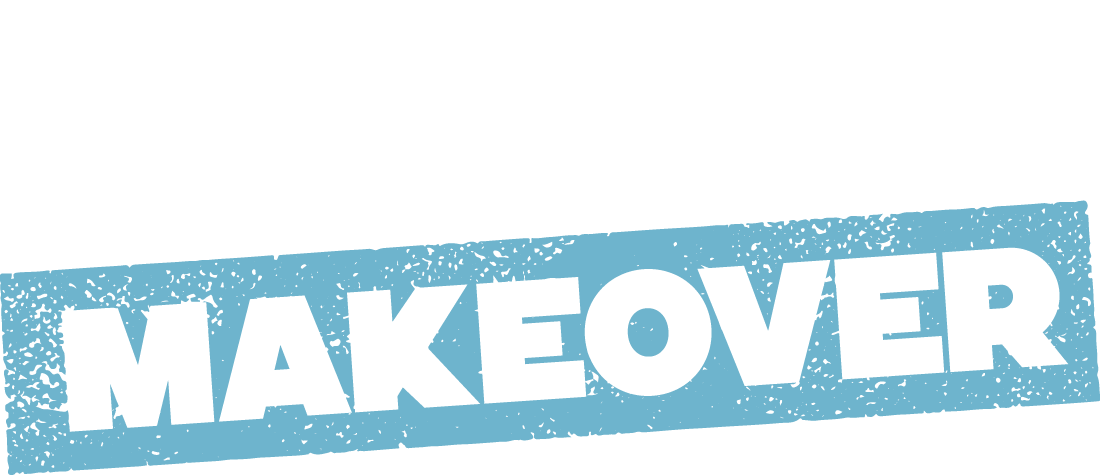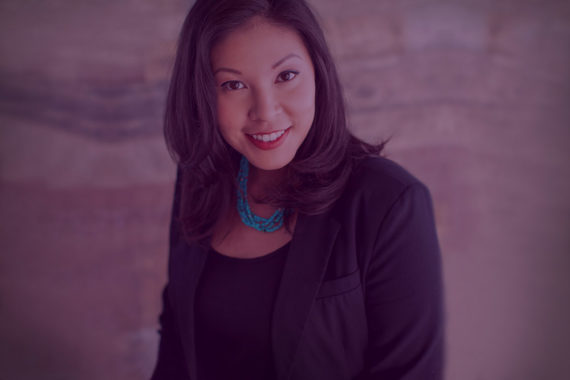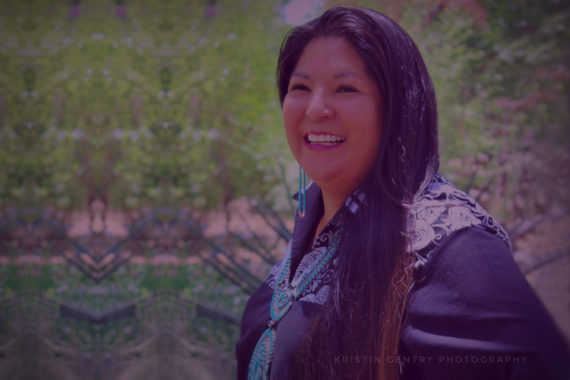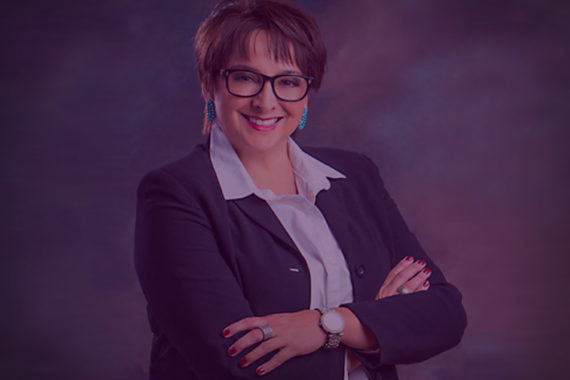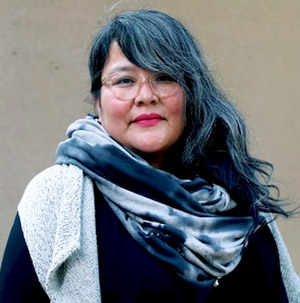
Vanessa Roanhorse of Roanhorse Consulting
In the last episode of this season of Pitch Makeover, recorded at the Native Women’s Business Summit, Natalia speaks with Vanessa Roanhorse. Vanessa is a resource curator, whose consulting practice connects Native communities with experts from outside the community looking to provide technical assistance. Vanessa is also a co-founder of the Native Women’s Business Summit.
EPISODE TRANSCRIPT
Gina: Welcome back to a special edition of Pitch Makeover recorded at the Native Women’s Business Summit. I’m Executive Producer Gina Delvac. Here at Pitch Makeover, we’ve introduced a land acknowledgement practice thanks to Anisa Flowers who is Woodland-Cree and Chief of Staff at Pipeline Angels.
The Native Women’s Business Summit was held, and these episodes were recorded, on Pueblos land, known as Albuquerque due to white colonizers. To learn more and find out who’s stolen land you are on, search for the Native Land Act. We’re grateful for Anisa in guiding the creation of this land acknowledgement which we will include in this special edition and future seasons of Pitch Makeover.
[Music plays]
Natalia: Hi everyone, it’s Natalia, host and creator of Pitch Makeover. We are back in Albuquerque, because I still have not left, getting to interview another awesome founder for the Native Women’s Business Summit special season of Pitch Makeover. I am with Vanessa Roanhorse from Roanhorse Consulting, one of the co-founders of the Native Women’s Business Summit, and you know what? Actually, the reason I am here in Albuquerque. Vanessa and I met in Portland when we both spoke at DazzleCon. Who would have ever told me that I would have to go to Portland, a super white city, to get to meet a Native woman entrepreneur?
Vanessa, who is Diné, is phenomenal, is a rock star, and embodies the values that were shared at the Native Women’s Business Summit yesterday and I’m going to try to remember a few of them, which was like: backbone, empowering, weaving…and I’m missing one.
Vanessa: Emerging.
Natalia: And emerging. You know why I missed that one? Because Vanessa Roanhorse has already emerged.
Vanessa: [Laughs.]
Natalia: Welcome, Vanessa. Thanks for joining us.
Vanessa: Thanks, Natalia. I can’t tell you how awesome it has been to be able to bring new people with, you know, thirty-first century thinking to come and meet our community. I think too often people want to know what’s happening in Indian country and with Indigenous people, but when it ultimately happens they come with pre-conceived notions and it’s been incredible to get to know you, and you come with an open heart, open mind, but you’re also willing to call it. And I think that’s exactly what this summit was about was, not relying or hiding behind stereotypes, but calling them out so we can ultimately heal from those things and do what we really want to do.
Natalia: That means so much, Vanessa, because oftentimes if we ignore, or deny, or we keep trying to bury things, then it’s not until we, like, dig all of that stuff out that healing can really begin which was such an important part of what yesterday was and that, sort of, community.
I just want to also honor that there needs to be a lot of unlearning and relearning. And a lot of the things that we need to be relearning, a lot of Indigenous peoples – Native peoples – already typed that memo and sent it out generations ago. And this whole thing of “thirty-first century” might actually be just going back to the generations, generations ago and that knowledge that got literally erased with the hope and with the work that you and the co-founders of Native Women’s Business Summit, you are doing. So, thank you, Vanessa.
Vanessa: Thanks, Natalia. The only thing I just want to add is that, you know, one of the learnings that I think we’re all finding with women in business and Indigenous business is that the model is really a quadruple bottom line. Like, culture and spirituality has always been baked into every single business that is growing off of our tribal nations as well as what we’re building and because of that, if we’re going to look at climate change and the need for resilience learning, a quadruple bottom-lined business model, or AKA an Indigenous business model, is how we’re going to survive into the thirty-first century.
Natalia: Tell me what the – you know, the quadruple bottom line – tell me the four bottom lines you’re talking about so that our audience also has that, so that they can start contemplating what “Indigenous Business Model” means.
Vanessa: Yeah. If you think about it people, profits, environment, they only exist if you have a culture around it. And so if we look at business models with this concept that culture has equal value to all of those, and for some it has more value, if we’re building towards our cultural values, when we do business and we consider people, profits and environment, culture will always put the community first.
Natalia: Are you ready to pitch, Vanessa?
Vanessa: Yes.
Natalia: Okay. Ready? Set? Go!
Vanessa: Hi, my name is Vanessa Roanhorse. I have a company called Roanhorse Consulting. Our company is specifically created to work with overlooked communities, municipalities, individuals, organizations, and take an asset-based approach to economic development. What we want to do is put people at the center. Identify what are their existing assets. We too also look at what’s missing, what’s lacking, and what are challenges? In my work I want to look at challenges as opportunities [and] liabilities as assets.
So the work that we try to do is look at whatever the problem is, identify the opportunity, and ultimately through community-based engagement in economy, help them create the solution that they’ve already built. All we need to do is connect them to the right people, resources, and provide them, sometimes, frameworks. And that’s what Roanhorse Consulting does.
Natalia: That was fifty-eight seconds. Before giving you the Pitch Makeover, Vanessa, I’d love to have, like, a little conversation with you. I love that you said the part about that you look at liabilities as assets. People often talk about, like, “What are someone’s strengths and weaknesses?” And I actually prefer when it’s like “strengths and growth opportunities,” right? Like, how can we think of that positive aspect of it? So, I love that you mentioned that.
You also said, “Help them create a solution that they already…have”? I think that’s what you said. Can you talk a little bit more about what you mean about that?
Vanessa: Yeah. I’ve worked for a variety of nonprofits in my life and unfortunately, and fortunately, what I’ve learned from some of the work of some of the nonprofits that are a little more thoughtful and oftentimes really understand community, and then there’s other nonprofits that just kind of come from a top-down mission-based, you know… “what is our impact” metrics.
What I mean is that when we go to work in what everyone likes to call vulnerable, marginalized communities or cultures, we ignore the fact that these folks are somehow within these terrible conditions are there and they’re living, and they’re surviving, some of them are thriving, and that they’re there for a reason. You know, I think we oftentimes think poor people live in poor places. But that’s not the case. You know, poor people are poor because of a variety of issues. And so we know people are figuring out how to make due with what’s been given to them.
So for my approach to solutions in turning liabilities into assets, there’s people in the community who have figured out how to deal with the issue, or the climate, or the challenges. The thing that they may just lack, similar to Indigenous communities, is they don’t know they’re an entrepreneur. They don’t know they’re a business owner because they’re not thinking of themselves that way, they’re just making do. And so, in so many ways they’re innovating with nothing – no money, no resources, no relationships, no contacts. They can’t, like, call their, you know, sorority or fraternity brothers and sisters and say, “Hey man, we have this thing. Can I get, like, a ten million dollar investment?” It’s not even a question.
So for me, when I say “the communities have the solutions,” they do. They just haven’t either formalized it, or they just need help formalizing it. Or they just need somebody to come in and help them with just some technical expertise because at the end of the day, I’m not going to live there, they’re going to live there, so how can we help them just put the connecting pieces together? And I’m not the expert, they are.
Natalia: I love that you said that because I often share that I have a strong preference for first-user founders and one of the reasons for that is – for anyone who might not be familiar with the term – a first-user founder is someone who the only reason that they’re launching the startup is because they haven’t found it in the marketplace. You know, they’ve found this pain point. They’re actually experiencing that pain point and they realize that this is where they could add value.
So one of the reasons that I think it’s so powerful being a first-user founder is because number one: that research of, like, “Hey, I’ve tried all of these other alternatives.” They get what’s missing from the market and they get how they’re differentiating their product or service from what already exists. There are all of these first-user founders out there in tribal lands and Native lands and what I love about what you’re doing is that you’re starting off with acknowledging, you know, these experts, these voices, and you’re not about silencing them. What you’re about is how can you bring them to the forefront? How can you strengthen these voices through technical assistance, through helping formalize them, which is so powerful. I have a couple of other questions for you.
Vanessa: Okay.
Natalia: So, you did this pitch. What was the audience that you were imagining? Like, who were you pitching to when you pitched right now?
Vanessa: Honestly, everybody. Which sounds crazy, but, like, what I’ve learned is that I think we’ve been conditioned to approach problems or come at a situation, particularly when we want to do good for social reasons, we come at it always from this savior perspective and a top-down place, where, we’re the ones who went away and got a degree, or we’re experts in these specific things. “We’ve tested these same solutions in other communities, therefore they’re equal, all the same.” [laughs] So instead of actually coming at a situation and asking ourselves, “What don’t I know?” we come at is with, “What do we already know and why we know we’re right?”
So for me, when I started this work – you know, it really kind of evolved over time – when I first started this work I really didn’t have a sense of what I was doing. I just knew I got really tired of being in situations where people with clearly very great degrees and knew a lot of things, but when they were talking about the communities they wanted to help, what was clear to me is that they’d actually never talked to someone from that community and said, “What would you like us to do?” It was, “This is what we’re doing for you.”
And so kind of from that experience, it’s just translated to everything. Whether it’s an individual business, a city, a nonprofit, my approach is consistently questioning them and questioning them and asking them, “Are you doing – How are you changing the frame in which you’re trying to approach this challenge? How can I help you do this?” And so, that’s really been my work – my work is less with helping communities figure this out, because like I said a lot of them already know. My thing is helping these groups that always come in to help these communities ideally do a better job or I find other groups that do a better job and get them to those communities.
Natalia: Okay. So I’m ready to give you the Pitch Makeover. Are you ready, Vanessa?
Vanessa: Yes. I would love it.
Natalia: I know that I said that you had fifty-eight seconds, so you had two seconds left. And I really…I’m like, I don’t what I want you to delete. So all of the stuff that I’m going to tell you has to fit in the two seconds. [Laughs.] So let’s see how it’s going to work out!
In terms of the keep, I wanted you to keep, you mentioned “put people at the center.” I thought, you know, just even starting off with that visual is really powerful. And then obviously you mentioned, like, the language around “liabilities as assets.” I thought that was a clever way of using words that generally are viewed as opposing. Then, keep also the part where you said “help them create the solution that they already have.” I thought that was a really insightful way of talking about these first-user founders.
As I mention delete, I’m having – I didn’t feel like – I guess, maybe let me put it this way: maybe things that I didn’t necessarily highlight, delete, so that you have room for – because I have, like, a couple things that I want you to add.
So the first thing that I want you to add is you mentioned during our conversation that these founders need help formalizing or they need help with technical expertise, so I think that also is a more tangible, specific way of explaining what you mean by, like, “help them create a solution.” Right? I love the “help them create a solution” in the sense of, like, it’s beautiful language, you know? Like, at the same time, it’s a little bit esoteric. And then when you got to the nitty gritty and you were like, “this is formalizing.” You know, when you use even that word I can already start thinking, like, “Oh. What are those revenue streams?” You know, like, “What is, like, the business model specifically?”
Then I would also add: you said “help groups that are helping communities do a better job.” I’m paraphrasing you. Or, you know, help communities find better groups to serve them. And what that sounds like to me is you’re a resource curator. [Laughs.]
Vanessa: [Laughs.] Wow!
Natalia: And that is your expertise because in some ways you are this umbrella. You know, you – clearing house. You are this hub. That value that you are providing. You know, I often talk about angel investing is smart money meaning that, yes, it’s the financial capital, it’s also the social capital in terms of connections, and in terms of the networks and it’s human capital in terms of the expertise and the background and skill sets. And so, in some ways what you have, you know, by being a resource curator, you are smart money because – in as much as maybe it’s not coming directly from Roanhorse Consulting, you are able to find and connect and match the smart money to who needs it. And someone’s smart money might not be someone else’s smart money and that’s where you’re adding value and it’s really powerful.
I’d say the Pitch Makeover is: keep the “put people at the center” because you know how meaningful that is to you and I think to the story. Keep the part about how you’re helping create a solution that is already there, that the communities you’re serving already have. Delete the liabilities and assets. And add how you’re helping. You know, you mentioned formalizing, you mentioned the technical expertise, and serving as a resource curator.
Vanessa: Mhm.
Natalia: Okay. Ready? Set? Go!
Vanessa: Hi, my name is Vanessa Roanhorse. I am the owner of Roanhorse Consulting. We are a group that focuses on asset-based economic development. We do this by putting people at the center to basically help them solve their most salient issues. Part of that work is that we provide technical expertise and help communities formalize what they’re already doing in their community and then we also work with organizations and outside entities to determine how can they best support our communities that they’re focused on. We provide this support to individuals, businesses, non-for-profits, governments, cities, etc. And part of that work is being a resource curator so that the resources being provided make the most sense.
Natalia: That was fifty-eight seconds. How did it go the second time? How did you feel?
Vanessa: I think where I felt better this time – I don’t think I nailed it – but I think where I felt better this time is trying to set the stage of this perspective of, you know, asset-based economic development by putting people at the center, felt good. And then recognizing that I really wanted to get into what were the direct services we’re doing. So one is the – this is really helpful – one is that I’m actually with communities providing that direct expertise and helping them formalize their existing solutions. Two: we’re also working with those organizations who are on the outside trying to come to these communities to do the same thing but trying to do it by – to the language that you gave me which is “resource curator” – meaning we take the role of making sure that those organizations either are doing it appropriately or we’re helping them find organizations that understand where they’re coming from because that is really, really important to ensuring that whatever the local solution is doesn’t get lost, appropriated, or taken. Too often we work with extractive purposes.
So I feel like between those two. I feel like I, kind of, landed on – this is the first time, by the way – the two client bases I’m working with, which is the people and then the people who want to help the people. I know that sounds crazy but I feel like that helped. It’s not clean, but I think as I hone more into that I’ll get a better sense on how to talk about it.
Natalia: Today’s Pitch Makeover Tip is: clarify your audience. And so, earlier on in our conversation after you pitched that first time I asked you, “So who are you pitching to?” And you said, “Everyone, really.” And I didn’t say anything because I kind of wanted to see how this would unfold because sometimes it is true that a founder might be in a situation where they have to have, like one… kind of, like, one pitch that is the go-to no matter where they are. However, the reality is oftentimes that it is important to have more than one pitch and what you just shared is really important. You just acknowledged that you have two client bases. And so the fact that you have two clients means that potentially you should have two different pitches for each one. One for, like, the founders that you’re working with, and one for those groups that you’re either helping, you know, get – I was going to say “get smarter” because I do think being more inclusive, and more aware, and all of these amazing things is getting smarter. So I’d say that just acknowledging that sometimes the cookie cutter approach of, like, having one pitch that is going to, like, work across the board sometimes ends up missing key elements and if just being comfortable knowing you just are going to customize your pitch depending on who it is, will give you that freedom and that space to then share those specific things that you, kind of, wanted to share are going to then be different depending on who is going to be in front of you.
Vanessa: [Laughs.] It’s just, like, amazing how as someone trying to create something, you don’t spend enough time honing it because you’re just out there doing it which, you know, is an easy excuse not to spend the time trying to hone the message. Just having this discussion today, I feel like for me I’m going to walk away with something concrete because I don’t spend enough time thinking about how I talk about what I do, I just spend more time doing it.
The other thing it makes me think of is code switching because it is, as you pitch to communities that are often ignored, overlooked, and not part of the solution-making, you have to build trust in community. But you also have to know why they’re distrustful or not interested or protective. Sometimes we think of people as being unwilling to work with you when it’s really about protection. And so it makes me think that, like, there’s a whole ‘nother level of this pitch which is also being able to be direct and honest and how those pitches are not for the average person. Quickly, you know when I talk about “Indian country,” that’s a word I can use. What is the value of that? And then the difference between people who want to be American Indians, Native Americans, Indigenous, First Nations. You know, we get into the nuance.
[Music plays]
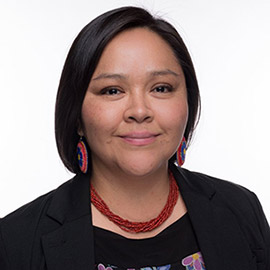
Jaime Gloshay, Loan officer at Acción and Co-Founder of the Native Women’s Business Summit
Natalia: Hi everyone. I’m back in the studio with Jaime Gloshay, one of the co-founders of the Native Women’s Business Summit. Jaime is White Mountain Apache, Diné-Navajo, and Kiowa. Welcome, Jaime.
Jaime: Thank you.
Vanessa: We are back for the Investor Take. What do you have for us today, Jaime?
Jaime: So usually, you know, when I do the access to capital stuff it’s primarily focused around the “Five Cs of Credit.” Like, that’s the normal financial paradigm that I see institutions work in. But what I’ve learned with the summit is it’s more than that. It’s so much more than that. It’s not just “Credit, Capacity, Collateral, Conditions, Capital.” But it is in a way, too! So I think that’s what’s really differentiating with Native cultures is, it’s so much more than just entrepreneurship. It’s not about “I and how am I going to make money, and how am I going to make a profit?” It’s more like, “Okay. How am I going to do this to create something of value, of meaning, of purpose, for my passion, for the benefit of our communities?”
And that’s what’s so different about us as entrepreneurs is we integrate so much of our identity and so much of who we are and our communities and our upbringing. And as my co-founder Stephine Poston used to say, “You know, a lot of my passion comes from my pain.” And it’s absolutely true. We see these gaps in our communities and we know of all the statistics and I think we’re at a point now where it’s like, “Okay. Now what? We need to self-determine our paths and we need to put these things into action.”
[Music plays]
Natalia: We are back with Vanessa Roanhorse from Roanhorse Consulting. Welcome back, Vanessa!
Vanessa: Thank you.
Natalia: So, tell me about the first time that you ever pitched. Tell me about that experience.
Vanessa: God, it was so terrible! So, just real quick, I only have a company because I couldn’t find a job. Like, I started this company because I couldn’t – no one wanted to hire me. I’ve got a strange background. And so when I started it, I partially started it for tax reasons because I got my first contract with the City of Albuquerque and I needed to figure out where to place it.
And so, I started Roanhorse Consulting. And, when I went in to meet the, at the time, Economic Development Director and he asked me, “What does your company do?” Up to this point [laughs] I hadn’t explained myself to anybody. And I must have rambled on for, I don’t know, enough time that he started looking at his phone [laughs]. Enough confusing things that at the end he was just like, “It was so great that you stopped in. Have a great day.” And I remember thinking, “Okay. He thinks I’m an idiot.” It was the worst verbalization of what I was trying to do. But since then, luckily, the City keeps hiring me back. Thank you, City, for trusting. But yeah, that was my first time someone actually asked me to formalize what it was I was doing.
Natalia: And how long ago was that?
Vanessa: Um about…two and a half years ago…almost two and a half years ago. We moved here almost three years ago, so…
Natalia: You know what I think is so interesting about that story is you said something along the lines of, like, “someone asked me to explain myself.” So when we think about agency, it was almost like you felt the need to explain yourself, which I think is really different than, you know, in terms of, like, pitching. It’s almost like pitching is, ideally, what you want to tell someone. You have the agency. You decide what you want to say. You decide what story, what narrative, what you want to explain. So in that sense, number one: congrats.
Vanessa: [Laughs]
Natalia: Because, you know, like, using one of your favorite words, you centered your work. You centered yourself. You know, and that has taken practice. And so I hope that this inspires our audience to do that. And I think that the other part is the whole…what is it? Proactive versus reactive? That, like, coming at it from this proactive place versus, like, responding. Right? Like, responding is a very different, sort of, energy. And I hope that if someone is thinking of it, you’re pitching proactively, that also gives a little bit more breathing room, you know, to just not feel like – what is that idiom? Like, stuck behind a rock and a hard place? Which sounds like it was a little bit of that.
Vanessa: It was a lot of naivete, I think. And also not preparing myself to really understand what I was embarking upon. I think, like I said, I sort of rolled into this work and I’m grateful everyday for it. It’s given me power that I didn’t know I had inside and it’s also given me a platform to do exactly what I want to do. And as a result, you know, I think the way I speak about what I’m doing now is ten times better than it was and it’s going to be better after our session.
But more importantly, you know, this concept of balling up everything into this moment, really just doesn’t – it’s not how my community or my culture exists. You know, like, in my family when you meet someone or you’re telling an important reason for something, you start with history and your ancestors and you speak about all of these pieces because nothing comes from out of nowhere. There’s a long history to how something becomes something. So in some ways a pitch can feel a bit anti what you’re taught. But at the same time it goes back to, you know, we communicate in multiple different ways. How do I communicate in this way? And then with other people, how do I communicate in that way?
Natalia: So it goes to the, you were saying, the code switching. Right?
Vanessa: Yeah.
Natalia: And then the other part that I thought was really powerful is – what you made me think – the word that came to mind was “abrupt.” Does it feel abrupt? Right? Because there’s this almost, like, this setup. And I had the honor to experience it at the Native Women’s Business Summit which was, you know, like, just how – and you mentioned it at DazzleCon in, like, white Portland.
Vanessa: [Laughs]
Natalia: Did you notice how I, like, just like, “…in white Portland.” And it’s, you know, just saying who you are, where you come from, you know, like, and to give that context. In some ways, you know, like, someone might not have the time to do that. At the same time the other part that I wanted to honor about you is that we are doers.
Vanessa: Yeah.
Natalia: You know, that’s something that I gravitated toward your energy. You’re a doer. So the other thing, especially for some audience members, if, like…another reason – it’s not just like there are a lot of other entrepreneurs out there that are waiting to cross the Ts and dot the Is before pitching, a lot are waiting before even starting, you know, like, to do anything. And sometimes, yes, it might take a little bit of capital. However, there might be certain things that they can start, you know, building their businesses in less capital-intensive ways. And here’s the deal, this is what I found out, especially with Pipeline Angels, it’s much easier to do a budget after you’ve gone through an experience and you actually know, like, the costs! Like, what the line items are. Right?
Vanessa: [Laughs] Yes!
Natalia: So, I was just thinking about your point about, like, you’re getting hired because number one, you’re a doer. You’re actually showing what you’re – you know, like, you’re delivering which is so important. And then I’m sure, like, it’s easier to pitch something once you’ve actually, like, already done it and you know what you’re pitching about or pitching.
Vanessa: Yes. One hundred percent. [Laughs]
Natalia: Anything else you want to share about that first-ever pitch experience?
Vanessa: Yes. What I would share with that is that, like, you know, getting through that and then walking out of there just feeling like…you know, just so angry with myself. The next time I got to pitch to the same person, I nailed it. I remember he looked at me and he was like, “Oh, that’s what you do.” And that felt good.
Natalia: I love that.
Vanessa: This has been, Natalia, like, awesome! Like, really awesome.
Natalia: Thank you for joining, Vanessa. And thank you for being one of the co-founders for Native Women’s Business Summit and thanks for giving me the opportunity to witness the great work you’re doing.
Vanessa: Well, we are honored to have you and come back again.
[Music plays and fades out]
